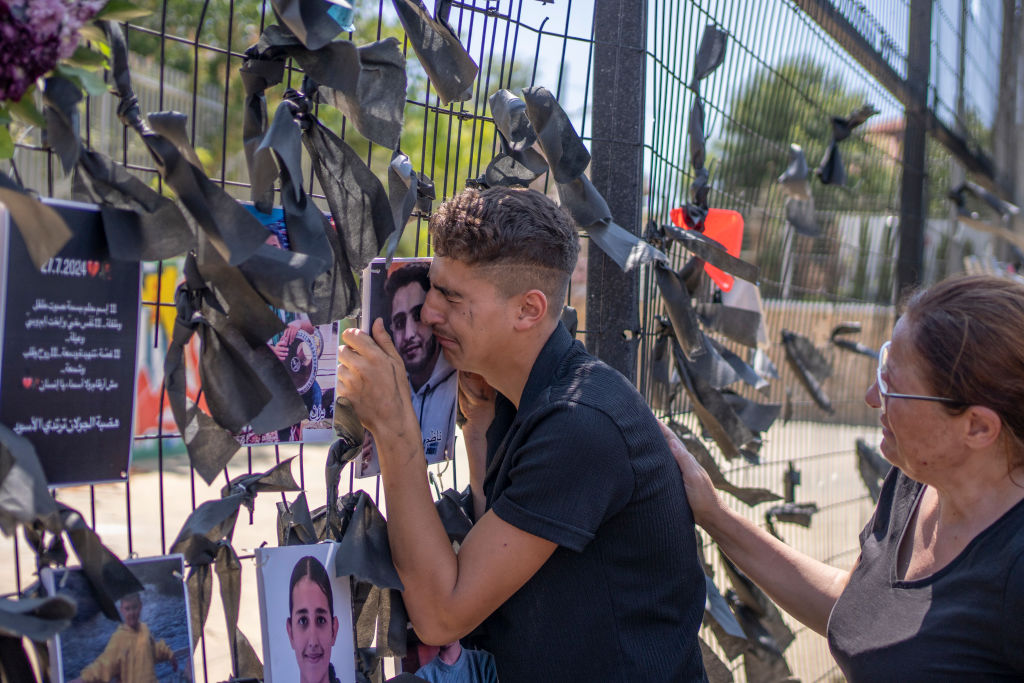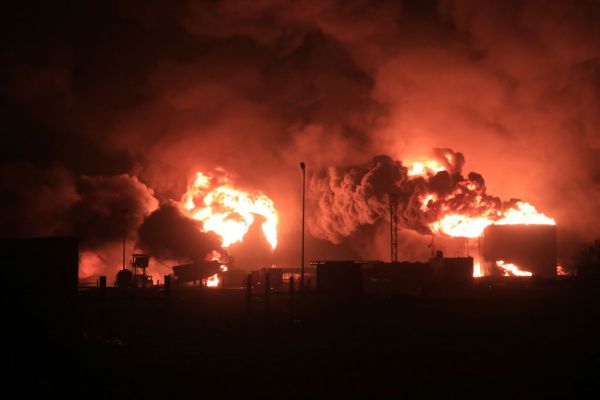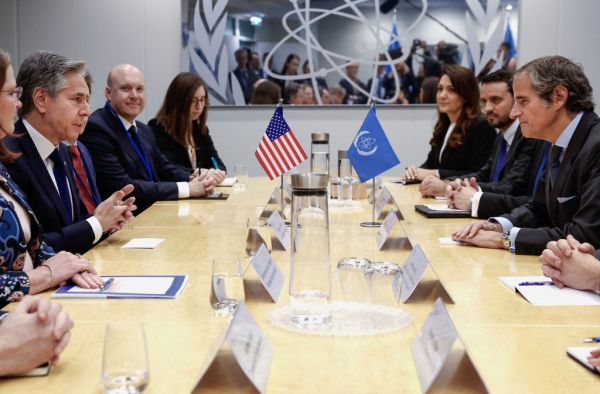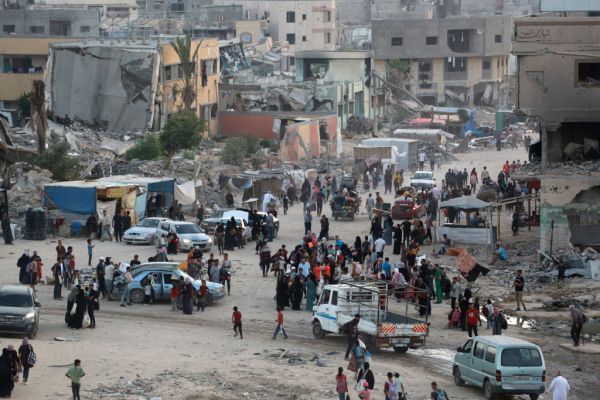The Lebanese terrorist group Hezbollah launched an attack on northern Israel, killing 12 children and wounding scores of others on Saturday. Hezbollah initially took responsibility for the attack on the messaging app Telegram. But once the group understood what happened—and the potential military and public relations fallout that the attack would trigger—Iran’s most powerful proxy attempted to deny responsibility.
Hezbollah’s denial, while patently absurd, holds a certain amount of logic. For one, the Druze children in the town of Majdal Shams who perished in the attack were almost certainly not the group’s intended target. And the group understands that an attack that claims the lives of so many children could be the spark that triggers a devastating war that Hezbollah would probably prefer not to fight. At least not now.
At the same time, Hezbollah is already playing with fire. The group began firing missiles, drones, and rockets toward Israel on October 8 last year—one day after Hamas carried out the slaughter of 1,200 Israelis and kidnapped another 250-plus, many of whom have been killed in custody. Hezbollah has fired thousands of projectiles at Israel over the last nine months. An estimated 100,000 Israelis from the country’s northern communities have been forced from their homes. Under normal circumstances this would already be a full-scale war.
But these are not normal circumstances. Israel has been battling Iranian proxy groups that have set the entire Middle East on edge the past nine months. Hezbollah has taken comfort in the fact that the Biden administration has restrained the Israelis by discouraging them from widening the war into Lebanon. What Hezbollah doesn’t seem to understand is that Israelis of all stripes are now ready to fight this war with or without the White House’s blessing. And when this war erupts, the likelihood is low that both sides will agree to fight a limited confrontation.
Hezbollah’s war logic is simply not grounded in reality. And it may come back to bite the group. The Israelis were reportedly ready to delay their fight with Hamas in order to destroy Hezbollah. Hezbollah dodged a bullet when the Biden administration publicly and repeatedly counseled the Israelis against it.
The group knows full well that a war with Israel will lead to the total collapse of Lebanon, which is already a failed state—both politically and economically. And yet, the group continues to attack Israel on a daily basis, believing American restraint on the Israelis has virtually foreclosed the possibility of war. It thus vows to keep fighting until the Gaza war ends. That itself is an odd position, given that Hamas continues to reject one ceasefire proposal after the next. Nevertheless, this has been Hezbollah’s rationale for continued attacks, leaving little room to stand down.
But Hezbollah was always playing with fire. With constant rocket and drone attacks into Israel, the Majdal Shams calamity was inevitable. If there was anything surprising, it was that a mass casualty event of this type did not happen sooner.
Actions have consequences. But the group is hoping that it will somehow escape paying a heavy price by denying responsibility. Some pro-Hezbollah media have suggested that the attack was the result of an errant Israeli Iron Dome interceptor. The Israelis have provided evidence to the contrary, noting the exact location of the launch and the exact time, too. And the Israelis have vowed to respond with significant force. Whether Hezbollah is willing to absorb the coming blows or this leads to an escalation remains to be seen.
Hezbollah continues to operate under the dangerous assumption that Israel does not want a wider war. The Israelis view Hezbollah as a metastasizing threat on their northern border for which there is no peaceful solution. They have no faith in the deficient French and U.S. ceasefire proposals intended to buy quiet along the Blue Line —the de facto boundary separating Israel from Lebanon drawn up in 2000 to certify Israeli withdrawal from south Lebanon. Israel understands that these would be mere short term fixes for long-term dangers. Hezbollah would use these weak arrangements to ultimately arm at breakneck speed in preparation for initiating, at a more fortuitous time for it and the Axis of Resistance—the Iranian-led alliance of regional militias and forces—the regional war against Israel that Hezbollah and Iran still seek to wage.
In other words, if a ceasefire is imposed along the Blue Line now, Hezbollah will not give the Israelis another chance to deal this project a fatal blow. Indeed, one of the factors that has restrained Israel to date has been the lack of a justification before the international community to attack Lebanon with overwhelming force. The murder of 12 children may change that calculus.
Admittedly, Israel may seek to keep this conflict contained, in light of all the other threats and pressure that it must contend with. However, given the grave nature of Hezbollah’s attack and the casualties it caused, the Israeli government may have no choice but to show its public that it is willing to go to great lengths to restore order on its northern border. This could mean strikes on the Hezbollah stronghold of southern Beirut, known as Dahiyeh. But an Israeli response might also include decapitation strikes against Hezbollah senior leaders. Either of these options may push the conflict to new levels of escalation.
Whether or not the international community and the media wish to acknowledge it, the war between Hezbollah and Israel may be past the point of containment. Ceasefire deals will only forestall a serious escalation for a time. Both sides understand that a destructive war is almost certainly on the horizon.
The Biden White House, hobbled as it may be, now has a few choices. It can try to negotiate a deal, but the chances of achieving one are slim. It can try to ride out the next six months and mount efforts to limit the escalation. Or it can provide the Israelis with what they need to finish off Hezbollah after all. Given its earlier miscalculations, and the inadvertent comforting signals it sent to Hezbollah, whatever path Team Biden chooses will be fraught with danger.






Please note that we at The Dispatch hold ourselves, our work, and our commenters to a higher standard than other places on the internet. We welcome comments that foster genuine debate or discussion—including comments critical of us or our work—but responses that include ad hominem attacks on fellow Dispatch members or are intended to stoke fear and anger may be moderated.
With your membership, you only have the ability to comment on The Morning Dispatch articles. Consider upgrading to join the conversation everywhere.